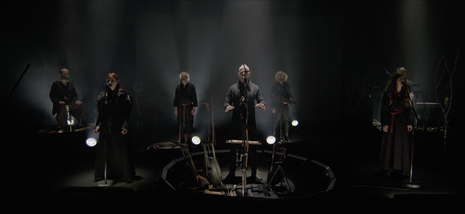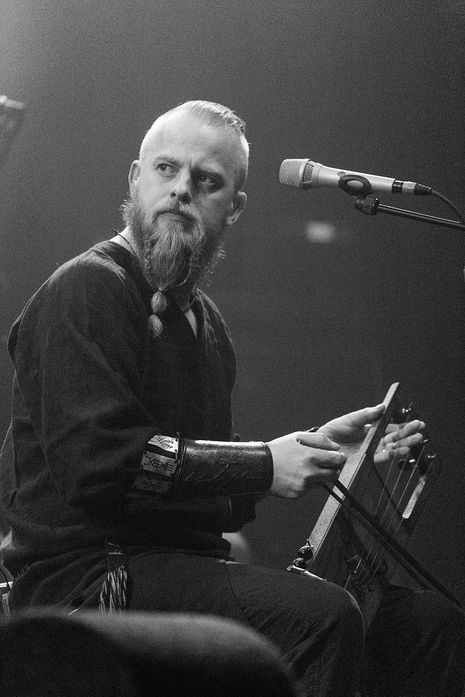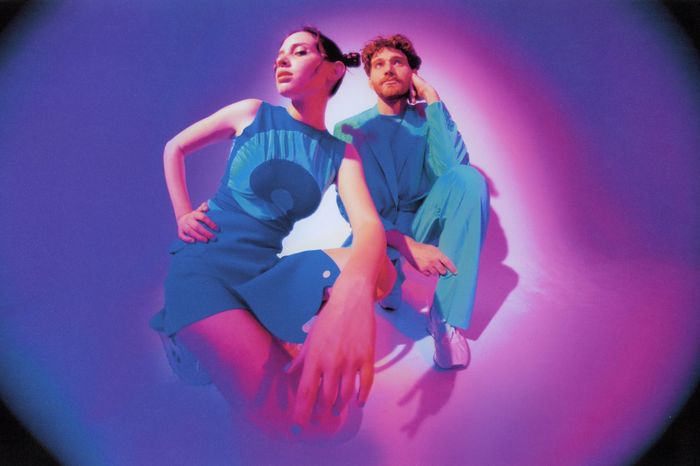Wardruna: Norse music with global aspirations
Einar Selvik discusses ancient runes, vain Vikings and our longing for a healthier relationship with the natural world

There are few bands across the world which can claim to attract as many metal fans as classical music listeners. Wardruna, a band dedicated to creating musical renditions of ancient Norse and Nordic traditions, are one such band. Boasting tens of millions of listens on Spotify and an army of fans across the world, Wardruna are leading a generation of bands returning to the past in order to recover lost traditions. But the purpose is not purely historical, as Einar Selvik, creative driving force behind Wardruna, told Varsity.
“For me it’s about the here and now, it’s about the future, it’s about sowing seeds, it’s about remembering things from the past that are still relevant, that still resonate and deserve a voice.”
“I had this vision of interpreting these things on their own premises using relevant instruments, recording in relevant places in its own language”
Wardruna developed in the early 2000s after Selvik moved away from his interest in metal music. Selvik “felt done with metal music. It didn’t feel personal, it was work. I felt the need to do something more in line with my personal passion and do something that truly meant something to me.”
This passion was for Old Norse culture and mythology. While some bands had previously appropriated aspects of that culture, none had yet approached it on its own terms. Selvik “had this vision of doing it with both hands and both feet, interpreting these things on their own premises using relevant instruments, recording in relevant places in its own language.”
The first three Wardruna albums, a trilogy compiled over the course of 15 years, are all based on the oldest runic alphabet. The music endlessly moves from dark ambience, to soaring melodies while retaining a thick mist of mystery. After all, the word rune, Selvik said, could mean “a secret, it could mean to whisper, it could mean wisdom of the esoteric kind, and even a magical song.”
These runes had a symbolic value and a name, and represent “very good images of the old culture. If you boil it down to its essence, it is about man’s relationship with nature, to each other and to something that is bigger than yourself. That is something, I would say, that is highly relevant today.”

So how did Wardruna turn these runes into music? The first step is establishing some solid ground. As Selvik put it, ‘not to climb into trees that don’t have roots.’ Many friends and scholars have helped this interpretative process. However, there is a great deal of interpretative freedom and Selvik is very clear: “I’m doing art. I’m lucky in the sense that I’m not doing a scholarly dissertation, I can break the rules.”
The ambiguity of the runes is something that Selvik brings into his own writing. Just as “the runes teach in riddles” so he writes “in dual meaning and layered meanings, basically throwing out questions.”
Selvik adjusts the compositional process depending on the rune. For the song ‘Bjarkan’, a brooding and mysterious chant which never ceases to hold your attention, Selvik went “into the forest and played on birch trees. I used the sound of the bark and the wind in the trees.”
But there are personal states as well: “Being warm, being cold, feeling sick, being tired, sleep depraved, recording on specific dates and in specific places in order to get as close as possible to the given rune.” For one track, ‘NaudiR’, which translates as ‘Need’, Selvik fasted for two days before walking in blizzard-like conditions. The song is characteristically dark and menacing, forever maintaining its distance from the listener before closing with anguished cries.
Throughout all of this, he maintains that “the runes are the composer and I am the instrument.”
Although Kvitvran, the most recent album, is not based on ancient runes it follows the same creative pattern as the earlier albums. The album explores more human elements as well as animistic themes, alternating between brush-strokes as large as the natural environment on which it was inspired and detailed examinations of personal issues. The titular song ‘Kvitvran’ emerges in anthemic intensity over an unrelenting drum beat, while songs such as ‘Grá’ strips almost everything, leaving only vocal harmonies and chanted incantations longing for a more harmonious relationship with nature.
There were many ways to explore the human condition in this album, Selvik felt, because of the ancient view of human nature. “In the old tradition they did not define the human being as body and mind, as we do today, I would say it was more nuanced. There were more layers to what defined you as a being and all of these small parts had different functions and places…we often think people in earlier times were so primitive, I would say that in many things it is the opposite. Their way of viewing things is much more complex than our way.”
Selvik has composed the score for the TV series Vikings as well as Assassin’s Creed Valhalla. However, Wardruna’s music is not constrained to any time period and Selvik said that he is “very conscious about not using the word Viking at all when working on my music.”
In many ways Wardruna is an attempt to bring out a forgotten aspect of ancient Scandinavian culture and to nuance our understanding of more familiar periods. He makes clear his desire to explode the stereotypes of dirty and drab Vikings: “The Vikings were perhaps the most vain and clean people in all Europe, they loved bling and colours. Even in the Anglo-Saxon chronicle it says British women preferred Norse men because they smelt better.”
Indeed, although there is a strong sense of time and place listening to Wardruna, “the core of it is very much a global thing with local variations. Perhaps that is why so many people from all over the world are connecting to it.”
I ask why it is that Wardruna’s music, sounding as if it had been composed at the dawn of time, resonated so strongly in the modern age. Selvik explained: “there is such a profound longing that many people feel, more and more, for a connectedness to our surroundings, to a more healthy relationship to our surroundings and nature. In that feeling it’s only natural to look to traditions, old or new, where that connectedness is more present…I think that our music provides a bridge and a gateway, it links to and comes from that longing.”
Looking forward to the concert on Sunday, Selvik said that we can expect a “hungry band and I presume a hungry audience.” He asked only that we “bring an open mind, that is the only thing you need to do and be yourself. The Wardruna audience is such a varied bunch of people: different ethnicities, different age groups, people who are into jazz, classical music or metal. It is a unique mix of people meeting and I love that.”
Warduna are performing at Cambridge Corn Exchange on Sunday 20th March.
 News / Deborah Prentice overtaken as highest-paid Russell Group VC2 February 2026
News / Deborah Prentice overtaken as highest-paid Russell Group VC2 February 2026 Fashion / A guide to Cambridge’s second-hand scene2 February 2026
Fashion / A guide to Cambridge’s second-hand scene2 February 2026 News / Christ’s announces toned-down ‘soirée’ in place of May Ball3 February 2026
News / Christ’s announces toned-down ‘soirée’ in place of May Ball3 February 2026 News / Downing Bar dodges college takeover31 January 2026
News / Downing Bar dodges college takeover31 January 2026 Comment / College rivalry should not become college snobbery30 January 2026
Comment / College rivalry should not become college snobbery30 January 2026










